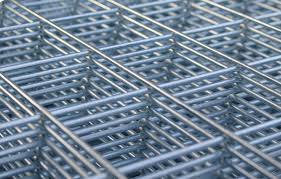Вер . 28, 2024 17:28 Back to list
Exploring the Benefits and Applications of High Strength Wire in Modern Engineering
The Advantages and Applications of High Strength Wire
High strength wire is an essential material in various industrial applications due to its excellent mechanical properties, durability, and versatility. This type of wire, often crafted from advanced alloys and treated to enhance its strength, is designed to withstand significant amounts of tensile stress without deforming or breaking. In recent years, the demand for high strength wire has surged in multiple sectors, including construction, automotive, aerospace, and telecommunications. This article discusses the properties, manufacturing processes, and applications of high strength wire, illustrating its critical role in modern industry.
Properties of High Strength Wire
The primary characteristic of high strength wire is its ability to endure high tensile loads. The tensile strength of this wire often exceeds that of standard wire materials, making it suitable for applications where safety and reliability are paramount. High strength wire typically has the following distinguishing properties
1. Tensile strength High strength wire can withstand greater loads compared to regular wire, which ensures optimal performance in demanding situations. 2. Ductility Despite its strength, high strength wire can undergo deformation without rupture, allowing for flexibility in applications, especially in construction and machinery. 3. Corrosion Resistance Many high strength wires are coated with protective materials or made from alloys that are resistant to corrosion, which enhances their lifespan and reliability. 4. Fatigue Resistance These wires are engineered to resist repeated stress cycles, making them ideal for dynamic applications where constant motion occurs. 5. Lightweight Compared to other strong materials, high strength wire often remains lightweight, allowing for easier handling and installation.
Manufacturing Process
The manufacturing of high strength wire typically involves several key processes, including drawing, heat treatment, and surface coating. The production begins with high-grade raw materials, often specific alloys selected for their favorable mechanical properties. The wire is drawn through progressively smaller dies to reduce the diameter and increase the strength through strain hardening.
Heat treatment plays a crucial role in enhancing the mechanical properties of the wire. Processes like quenching and tempering adjust the hardness and ductility, tailoring the wire for specific applications. Finally, surface coatings may be applied to provide additional protection against environmental factors, such as moisture and chemicals, which can lead to corrosion.
Applications of High Strength Wire
high strength wire

High strength wire enjoys a wide range of applications across various industries. Here are some notable examples
1. Construction High strength wire is commonly used in reinforced concrete structures, providing tensile strength that complements the compression characteristics of concrete. It is also utilized in the construction of bridges, where the integrity of support cables is critical.
2. Automotive Industry In automotive manufacturing, high strength wire is employed in the production of safety features, such as seat belts and airbag systems. It is also integral in suspension systems and other components where durability and strength are essential.
3. Aerospace Industry The aerospace sector relies heavily on high strength wire for various applications, including the manufacturing of aircraft components and systems. The lightweight and high-strength characteristics of these wires make them ideal for improving fuel efficiency and structural integrity.
4. Telecommunications In telecommunications, high strength wire is often used in the construction of towers and antennas. Its resilience allows for long spans without significant deformation, which is vital for maintaining signal integrity.
5. Marine Applications High strength wire is utilized in the marine industry for mooring, rigging, and safety equipment, where corrosion resistance and strength are vital due to harsh environmental conditions.
Conclusion
In conclusion, high strength wire is a pivotal material in numerous industries, offering unmatched durability, resilience, and versatility. Its unique properties, combined with advanced manufacturing techniques, enable it to meet the rigorous demands of modern applications. As technology continues to advance, the development of even stronger and more efficient wire will likely enhance its presence in existing markets and create new opportunities across various sectors. The ongoing research and innovation in materials science will ensure that high strength wire remains a cornerstone of engineering solutions for years to come.
-
Durable Welded Wire Mesh for Industry Factory | Custom Solutions
NewsAug.27,2025
-
Durable Welded Wire Mesh for Industry Factory - High Quality
NewsAug.26,2025
-
Leading Galvanized Steel Fence Factory | Durable & Secure Fencing
NewsAug.24,2025
-
Welded Wire Mesh for Industry Factory - Durable & Custom Solutions
NewsAug.23,2025
-
Your Galvanized Steel Fence Factory - Strong, Durable Solutions
NewsAug.22,2025
-
Welded Wire Mesh for Industry: Factory Direct & Custom Solutions
NewsAug.21,2025

